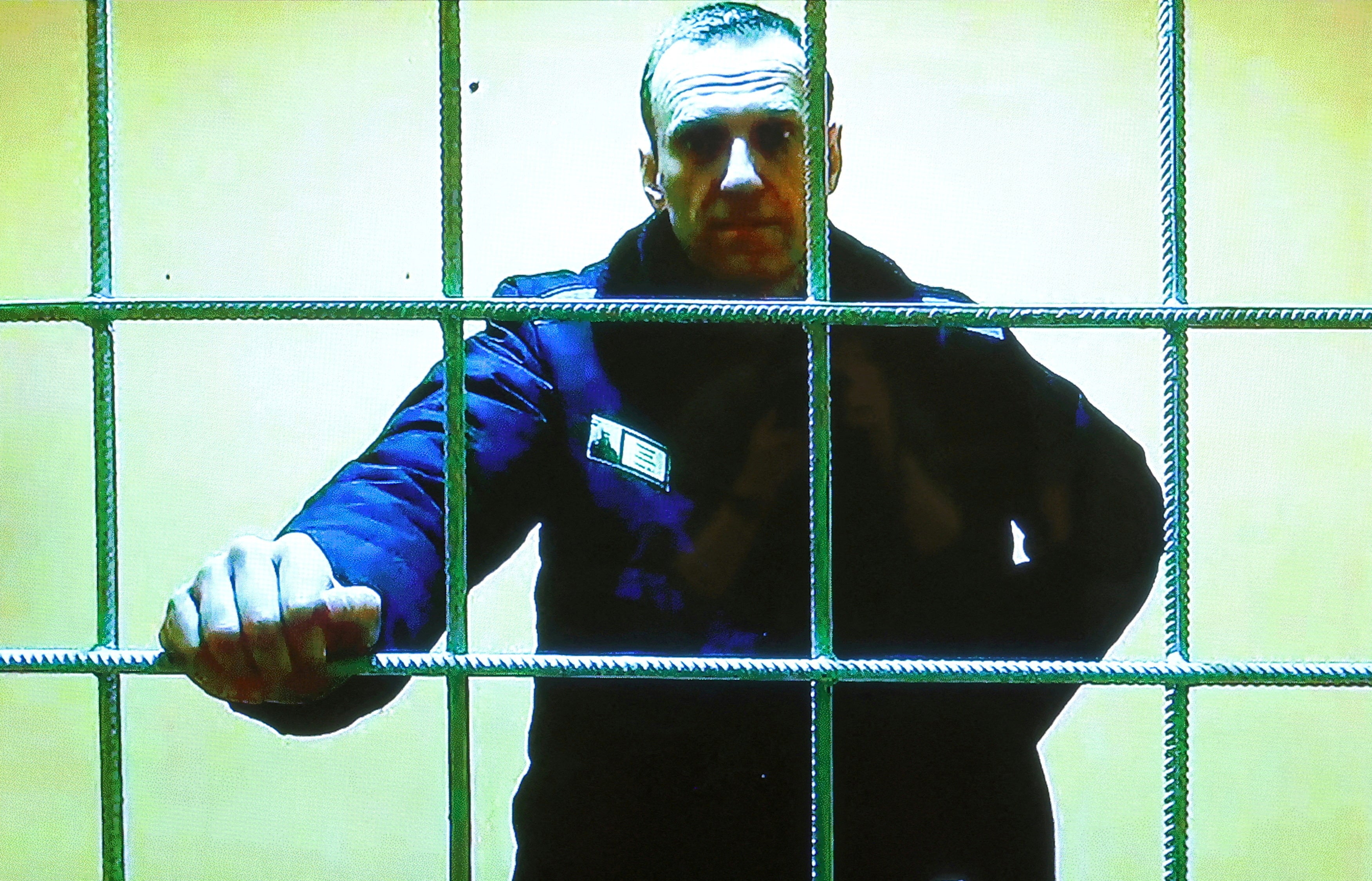Why Navalny must be freed from Putin’s barbaric tyranny now
Editorial: Banishing Russia’s leading opposition figure to a penal colony in the Arctic Circle ahead of presidential elections is evidence not of the Kremlin’s strength but of its weakness. He must be released immediately

The Yamal peninsula is one of the bleakest places in the world. At this time of year, it exists in a perpetual exchange between darkness and dusk; blizzards rage, winds howl and the temperature often dips below -30C. This is where Russia’s leading opposition figure, Alexei Navalny, has begun serving a 30-year sentence, which includes 19 years that were added after a new trial took place last summer in which he was convicted on charges of extremism.
For much of this month, Mr Navalny had appeared to be lost in Russia’s prison system. It has now transpired that, even as Western countries were preparing to celebrate Christmas, with bright lights, warm fires and festive food, he was completing a near three-week winter journey from the prison where he had been held near Vladimir, north of Moscow.
The end of this trek, details of which emerged only on 25 December, was the IK-3 penal colony at Kharp inside the Arctic Circle – almost 2,000km further to the northeast – which is also known as the Polar Wolf colony.
For the three weeks that he was en route, Mr Navalny’s whereabouts were undisclosed, fuelling fears that he had fallen seriously ill – or worse, given that he had suffered bouts of ill health through the autumn. Those fears have now been only fractionally allayed by the news of his arrival, and by the succession of seemingly cheery – and sarcasm-laden –social media posts he sent out via his lawyer to his supporters.
Amid joking references to himself as Father Frost – Russia’s version of Santa Claus – and his new cold-weather gear, what rang most true was his reference to the journey as exhausting, and his relief at his safe arrival.
Both the camp Mr Navalny has now arrived at and the timing of his transfer speak volumes about the nature of the current Russian regime. The Polar Wolf colony was part of the Gulag network (Solzhenitsyn’s “Gulag Archipelago”), which was set up in the 1960s to hold the most dangerous criminals. Its isolation, still more than the harsh climate, was part of its appeal to an increasingly beleaguered Soviet system.
Mr Navalny, whose campaigning – initially against corruption, and latterly against the system itself – has never been anything other than peaceful, is not the first dissident to have been incarcerated for political purposes.
Like many of his predecessors, he eschewed exile, choosing to return from Germany in 2021 after recovering there from an apparent assassination attempt by poisoning. Like them, he has shown, and continues to show, extraordinary strength of spirit, defiance and resilience. And like them, he has been repeatedly hauled before the courts on new charges designed to keep him out of circulation.
His transfer to the Polar Wolf colony – one of the harshest camps in a country hardly known for its soft prison conditions, and one of the least accessible – is clearly intended not only to punish his refusal to be intimidated, but to silence his voice in the run-up to next year’s Russian presidential election.
But Mr Navalny also illustrates some differences between then and now. At 47, he is one of the most effective opposition activists and leaders Russia has recently known. He understands how to use modern media to convey his message and garner support. He has shown current and future opposition figures the way, and continues to demonstrate that Russia, even under the increasingly repressive measures adopted by Vladimir Putin, is not the impermeable society it once was. There are cracks for those prepared to use them, albeit at great personal risk and cost.
So far, the Russian authorities’ many efforts to destroy Mr Navalny’s opposition network, which were redoubled after the invasion of Ukraine, have succeeded only in part. Prosecutions, and the threat of prosecutions, have worked only to a degree. Activists have been driven underground or abroad, but Mr Navalny and his campaign have not been silenced.
In the coming months, with the war in Ukraine continuing and Russia’s presidential election nearing, it is crucial that international attention is not deflected from those who courageously, and against all the odds, continue to oppose the regime.
International attention matters, as can be judged by the fact that Mr Navalny’s safe arrival at the Kharp penal colony was made known almost at once, and that his lawyer – to his own, and Mr Navalny’s, surprise – was allowed to see him, so giving the report wider credibility. A confident regime might have ignored outside appeals, if only for information. It speaks of a certain weakness that the Kremlin felt it could not afford to leave Mr Navalny’s whereabouts, or his safety, unknown.
The simple truth is that the multiple charges on which Mr Navalny has been convicted – including, most recently, inciting and financing extremism and setting up an illegal NGO – boil down to just one: having the courage and determination to challenge Mr Putin, and doing so effectively, even from jail. Mr Navalny’s convictions, and his banishment to the nether regions of the Gulag, are evidence not of the Kremlin’s strength but of its weakness.
There can be few clearer cases of imprisonment purely on the grounds of being an opposition activist. Alexei Navalny is a political prisoner and should be released now.






Join our commenting forum
Join thought-provoking conversations, follow other Independent readers and see their replies
Comments